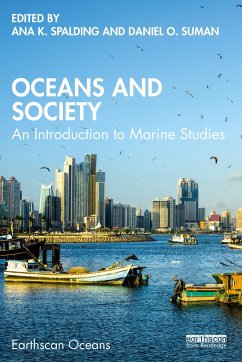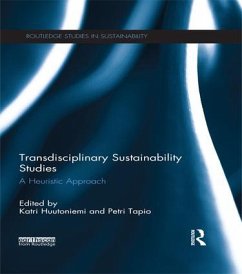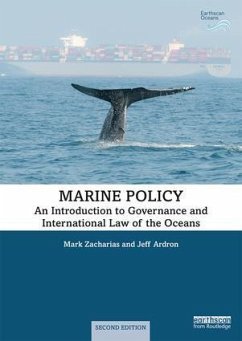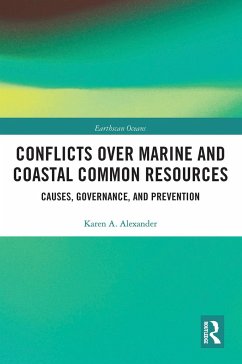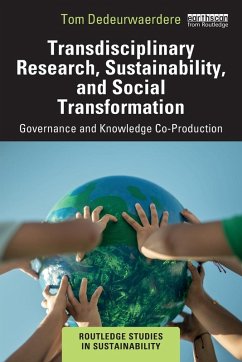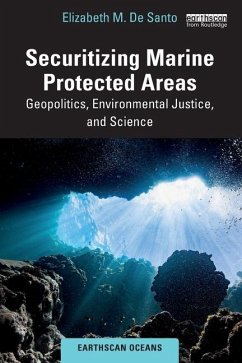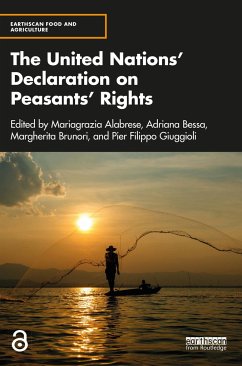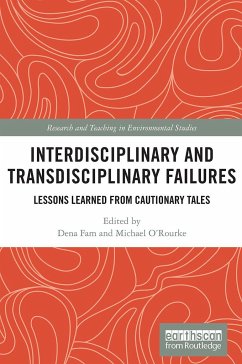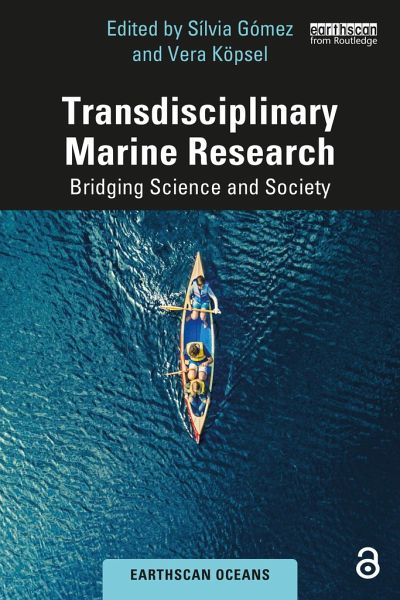
Transdisciplinary Marine Research
Bridging Science and Society
Herausgegeben: Gómez, Sílvia; Köpsel, Vera
Versandkostenfrei!
Versandfertig in 6-10 Tagen
40,99 €
inkl. MwSt.

PAYBACK Punkte
20 °P sammeln!
Drawing on the expertise of marine researchers from both the natural and social sciences, this book examines how we, as both scientists and societies, can return to a sustainable co-existence with the ocean and use the tools of transdisciplinarity to bring together the diverse forms of knowledge needed to achieve this important task.The marine sciences play a vital role in producing and providing the knowledge needed for a transition towards ocean sustainability. With a multitude of actors involved in using, exploiting, and safeguarding the seas, however, this task cannot be solved by science ...
Drawing on the expertise of marine researchers from both the natural and social sciences, this book examines how we, as both scientists and societies, can return to a sustainable co-existence with the ocean and use the tools of transdisciplinarity to bring together the diverse forms of knowledge needed to achieve this important task.
The marine sciences play a vital role in producing and providing the knowledge needed for a transition towards ocean sustainability. With a multitude of actors involved in using, exploiting, and safeguarding the seas, however, this task cannot be solved by science alone. Transdisciplinary research is needed, bringing together scientists and all other actors of society to jointly co-produce the knowledge and innovations that we so urgently need. In this context, this book examines and answers key questions at the forefront of transdisciplinary marine research: How can we provide approaches that integrate marine biodiversity and social systems in an appropriate relationship? What methodologies are most suitable to engage stakeholders in participatory processes providing new knowledge and tools for co-designing solutions with balanced socio-ecological embeddedness? How do we best integrate scientific with lay and local knowledge, and how are diverse knowledges valued in engagement activities? How can we reconcile socio-economic activities and the often divergent values attached to them to provide ethical principles for fair and equitable policy decisions? The book addresses these questions by combining an array of chapters about new theoretical approaches to transdisciplinary marine research, methodological considerations, as well as case studies from the nexus of the research and practices of engagement with a variety of stakeholder groups across the globe.
This book will be of great interest to students and scholars studying marine science and ocean research across a wide range of disciplines, including marine biology, environmental governance and policy, ocean resource management, oceanography, environmental anthropology, human geography and sustainability. It will also be of interest to those looking to build a greater understanding of transdisciplinary research and knowledge co-production, and practitioners working alongside academics.
'Chapter 1 and Chapter 8 of this book is available for free in PDF format as Open Access from the individual product page at www.routledge.com. It has been made available under a Creative Commons Attribution-Non Commercial-No Derivatives 4.0 license.'
The marine sciences play a vital role in producing and providing the knowledge needed for a transition towards ocean sustainability. With a multitude of actors involved in using, exploiting, and safeguarding the seas, however, this task cannot be solved by science alone. Transdisciplinary research is needed, bringing together scientists and all other actors of society to jointly co-produce the knowledge and innovations that we so urgently need. In this context, this book examines and answers key questions at the forefront of transdisciplinary marine research: How can we provide approaches that integrate marine biodiversity and social systems in an appropriate relationship? What methodologies are most suitable to engage stakeholders in participatory processes providing new knowledge and tools for co-designing solutions with balanced socio-ecological embeddedness? How do we best integrate scientific with lay and local knowledge, and how are diverse knowledges valued in engagement activities? How can we reconcile socio-economic activities and the often divergent values attached to them to provide ethical principles for fair and equitable policy decisions? The book addresses these questions by combining an array of chapters about new theoretical approaches to transdisciplinary marine research, methodological considerations, as well as case studies from the nexus of the research and practices of engagement with a variety of stakeholder groups across the globe.
This book will be of great interest to students and scholars studying marine science and ocean research across a wide range of disciplines, including marine biology, environmental governance and policy, ocean resource management, oceanography, environmental anthropology, human geography and sustainability. It will also be of interest to those looking to build a greater understanding of transdisciplinary research and knowledge co-production, and practitioners working alongside academics.
'Chapter 1 and Chapter 8 of this book is available for free in PDF format as Open Access from the individual product page at www.routledge.com. It has been made available under a Creative Commons Attribution-Non Commercial-No Derivatives 4.0 license.'





